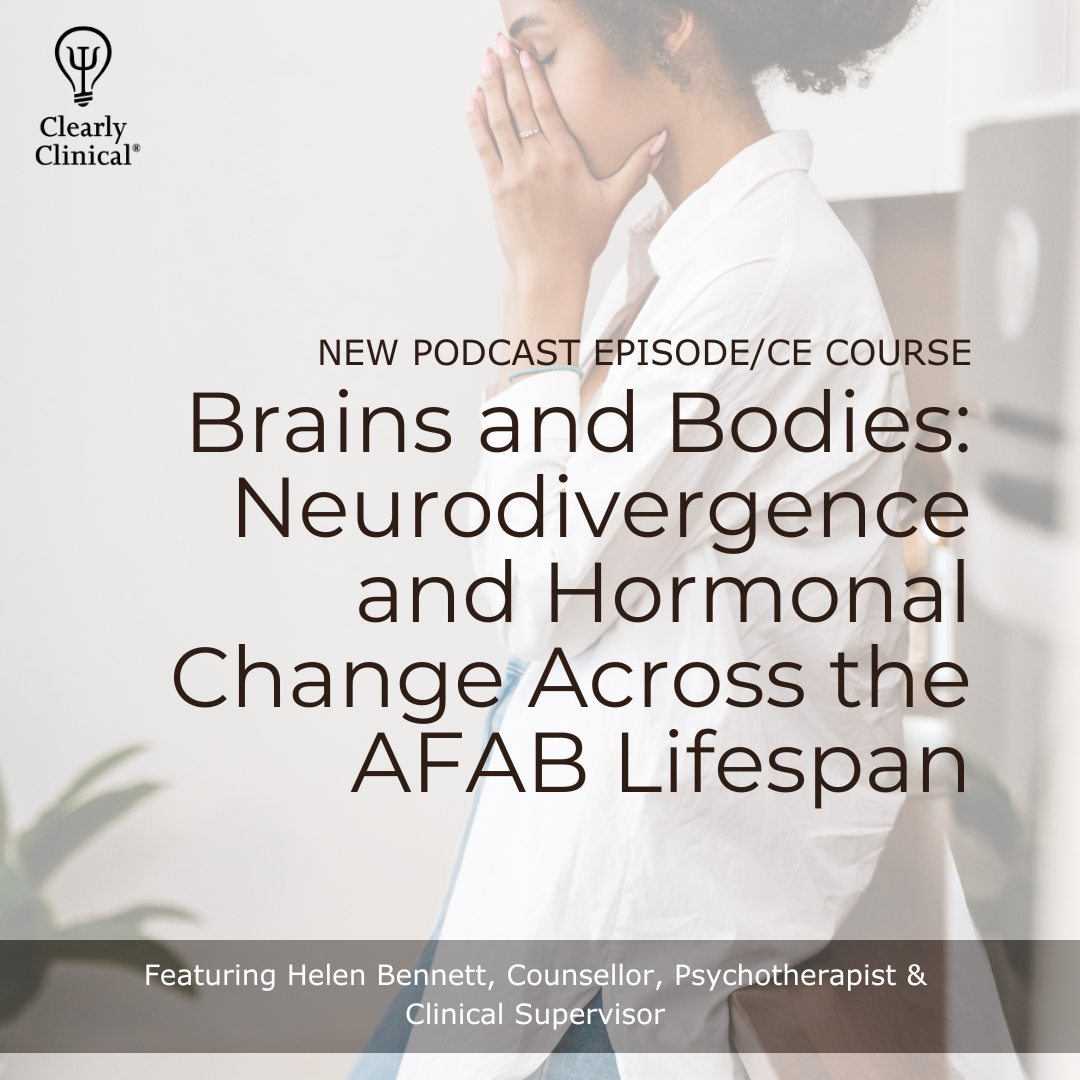Feeling Judged: The Silent Reason Clients Pull Away and Drop Out
/When Clients Disengage: Using IFS to Prevent Harm and Strengthen the Therapeutic Relationship
Over half of therapy clients report feeling devalued by their therapist at some point in treatment (Vybíral et al., 2023). Let that sink in. More than 50 percent.
In this powerful and eye-opening episode of Clearly Clinical, Dr. Beth Mullen-Houser joins us to explore how subtle therapist behaviors, often unintentional, can lead to client disengagement, early dropout, and unresolved therapeutic ruptures. More importantly, she shares how Internal Family Systems (IFS) therapy can help clinicians recognize and shift internal dynamics in real time to reduce harm and foster deeper, more ethical therapeutic connections.
The Hidden Cost of Feeling Judged in Therapy
Research tells us that when clients perceive their therapist as judgmental, culturally incompetent, or emotionally distant, it significantly erodes the therapeutic alliance. In the Vybíral et al. meta-analysis, clients cited harmful therapist behaviors including:
Being dismissive or emotionally detached (17%)
Misinterpreting or failing to understand client experiences (37%)
Showing cultural incompetence (37%)
Devaluing the client (56%)
Using shaming, lecturing, or interruptive communication (40%)
As Dr. Mullen-Houser notes, these actions do not always stem from malice. They often arise from unexamined countertransference, therapist distress, or systems that do not allow for emotional regulation and reflection.
An IFS-Informed Approach to Therapist Self-Awareness
IFS therapy is not just for clients. It offers a powerful framework for therapists to notice and manage their own internal states, especially those that interfere with attunement and empathy. Through the lens of IFS, clinicians can cultivate moment-to-moment awareness of their thoughts, body sensations, and emotional impulses in session.
Dr. Mullen-Houser shares simple yet effective tools, such as:
Mid-session self-check-ins every 10 to 15 minutes to assess tone, energy, and emotional state
Asking, “How do I feel toward this client right now?” to identify reactive parts
Using grounding practices like breath awareness, compassionate self-talk, and visual anchors to return to presence
This dual awareness, of client and therapist internal experience, can profoundly shift the trajectory of therapy toward deeper healing.
Ethics Beyond the Codes
Throughout the episode, Dr. Mullen-Houser weaves in the ethical imperative of therapist self-awareness. Concepts like non-maleficence, autonomy, and informed consent are not just checkbox items. They are living processes that happen in real time, often within the nuances of facial expression, tone, and pacing.
She also emphasizes the importance of ongoing consent, not just at intake but throughout each session. IFS offers ways to check in with clients gently and often, ensuring that we are not pushing too far, too fast, or in ways that reinforce harmful dynamics.
Hope and Healing Start with Us
One of the most compelling takeaways from this episode is the sense of hope. Yes, therapists make mistakes. Yes, we carry our own burdens into the room. But with intention, training, and compassion, for ourselves and our clients, we can do better.
IFS provides more than technique. It offers a stance of compassionate curiosity that can transform not only client outcomes but therapist fulfillment.
Listen to Episode 249: When Clients Disengage: An IFS-Informed Approach to Repairing Ruptures and Improving Outcomes
Earn CE credit for listening to this episode; join our 1-year membership for $130 for unlimited podcast CE credit for a year.
Keywords: IFS therapy, client dropout, therapeutic rupture, therapist ethics, therapist burnout, feedback-informed treatment, trauma-informed care












